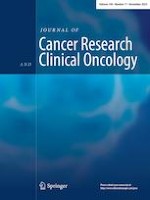Published in:

Open Access
12-09-2023 | Research
Development and implementation of a student tumor board as a teaching format for medical students
Authors:
Irina Mäurer, Robert Drescher, Jakob Hammersen, Nora Dieckmann, Yvonne Gremme, Max-Johann Sturm, Aaron Lawson McLean, Anna C. Lawson McLean, Christian Senft, Andrea Wittig, Caroline Klingner, Christiane von Sass, Matthias Mäurer, Marcel A. Kamp
Published in:
Journal of Cancer Research and Clinical Oncology
|
Issue 17/2023
Login to get access
Abstract
Purpose
Tumor boards serve as established platforms for interdisciplinary expert discussions and therapeutic recommendations tailored to individual patient characteristics. Despite their significance, medical students often lack exposure to such interdisciplinary discussions as tumor boards are currently not integrated into medical curricula. To address this, we aimed to enhance future physicians' interdisciplinary communication skills and subject-specific knowledge by introducing an interactive series of five linked tumor board seminars within the domain of neuro-oncology.
Methods
We developed a neuro-oncological student tumor board using a flipped-classroom format. The primary objectives of this case-centered approach included fostering an understanding of the tumor board process, active participation in multidisciplinary case discussions, honing appropriate communication strategies, and creating personalized therapy plans that consider inputs from all relevant disciplines, individual patient factors, and ethical considerations. To gauge the effectiveness of the seminar series, we administered structured pre- and post-course questionnaires.
Results
Fourteen medical students in third to fifth year participated in the pilot series. Despite its organizational complexity, the interdisciplinary seminars were feasible. Students demonstrated significant growth in competence, aligned with predefined learning objectives. Notably, they appreciated the supportive learning environment and interactive teaching format, which kindled their interest in interdisciplinary oncology.
Conclusion
Active participation in a student tumor board can empower students to tackle the diverse challenges of caring for cancer patients within an interdisciplinary team during the early stages of their careers. The student tumor board represents an innovative, learner-centered approach to teach interdisciplinary cancer treatment, communication strategies, and ethical aspects of medical practice.